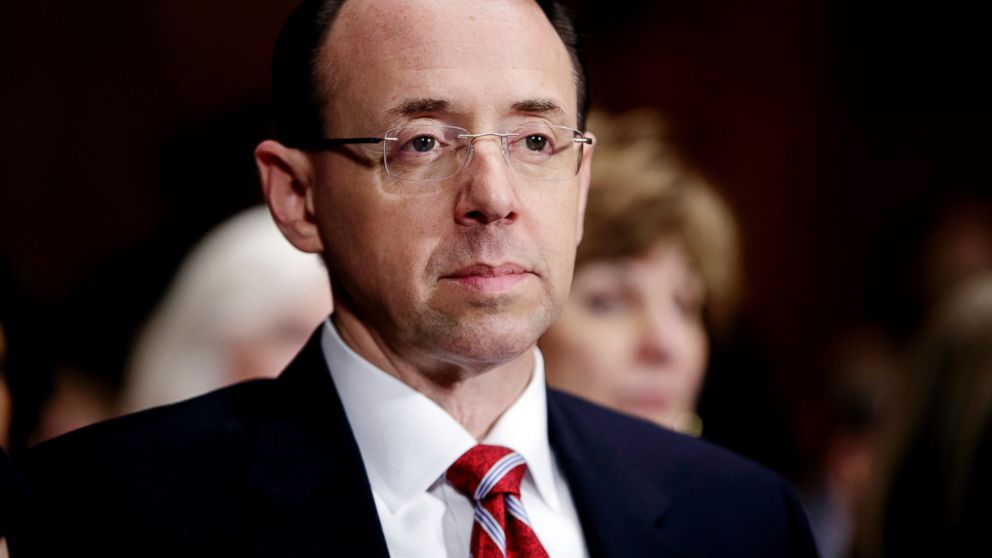Justice Department statement casts scrutiny on 'anonymous allegations'
The directive comes as details continue to emerge about the Russia investigation

— -- A vaguely worded statement released by the Department of Justice Thursday night warned Americans to "exercise caution before accepting as true any stories attributed to anonymous ‘officials,’" one day after a news report alleged that the department's special counsel was investigating President Donald Trump for obstruction of justice.
"Americans should exercise caution before accepting as true any stories attributed to anonymous ‘officials,’ particularly when they do not identify the country – let alone the branch or agency of government – with which the alleged sources supposedly are affiliated," read the statement from Deputy Attorney General Rod Rosenstein.
"Americans should be skeptical about anonymous allegations," it continues. "The Department of Justice has a long-established policy to neither confirm nor deny such allegations.”
The Washington Post wrote Wednesday that Special Counsel Robert Mueller had expanded the inquiry into Russian election interference to include whether Trump obstructed justice.
In response to the story, a spokesman for Trump's attorney issued a statement criticizing leaks by the FBI, but providing no additional detail.
"The FBI leak of information regarding the president is outrageous, inexcusable and illegal," the statement in response to the Washington Post story read.
In an appearance before the Senate Appropriations Committee Tuesday, Rosenstein promised Mueller would have "full independence" as he conducted his investigation.
In a series of tweets Thursday, Trump referred to the idea of an obstruction of justice probe as a "phony story" and a "witch hunt."
The White House has long criticized leaks in relation to a number of different issues since Trump's inauguration in January, among them, recently: reports of Trump discussing classified information with Russian officials in the White House, the spread of information about May's bombing in Manchester, England, and former FBI Director James Comey's efforts to share details of contemporaneously written memos about his meetings with Trump to the New York Times via a friend.
Comey himself described the "challenge" of journalists writing about confidential information during testimony before the Senate Intelligence Committee last week, saying, "the people talking about it often don't really know what's going on and those of us who know what's been on are not talking about it and we don't call the press to say, 'Hey, you got that thing wrong about the sensitive topic.'"



